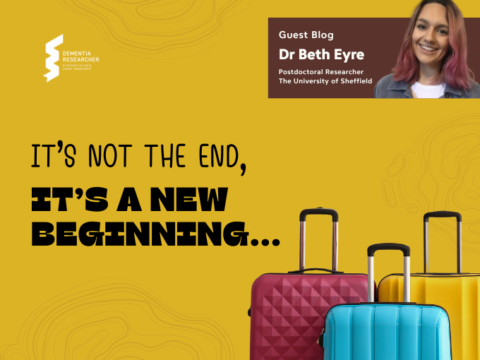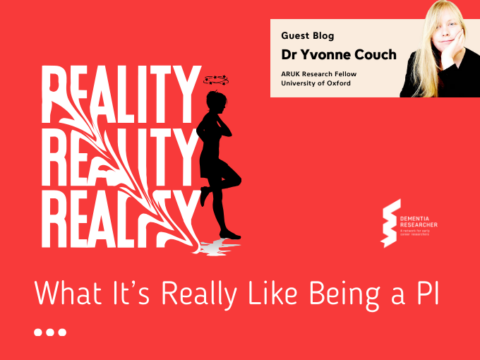It’s that time of year again when we welcome the new cohorts of PhD students. Firstly, I’d like to say congratulations! Getting accepted onto a PhD programme is a huge deal, you’ve clearly worked very hard for the past few years and now want to devote even more time to your specialist area – you should be so proud that you’ve got to this point.
I can’t quite believe that come October I will be going into my third year of my PhD. The last two years have absolutely flown by. Strangely, I’ll soon be in a position where first year PhD students may start to look up to me thinking I have all the answers. Sorry to let you down, but I sadly do not have all the answers – none of us do.
But what I do have are my own experiences of what I wish I’d known before I started my PhD. So, this blog is going to be about the things I wish I’d known before I started – so hopefully you’ll know these things early on and your transition can be as smooth as possible (in the grand scheme of starting a PhD in a global pandemic, that is).

 It’s okay to feel like you have no idea what you’re doing
It’s okay to feel like you have no idea what you’re doing
When you start a PhD, you have this feeling that everyone around you knows everything about the topic area, about their project and just about life in general. This really isn’t the case. The point of a PhD is to add something original to the field. It’s likely that you are the first person to be doing many of the things you plan to do in your project (how cool is that??). A PhD is a learning process and in order to learn you have to start somewhere, so feeling like you have no idea about what you’re doing is part of that process.
 Your project will change
Your project will change
When I applied for my specific project, I genuinely thought it was all set-in stone. I thought this was exactly what I’d be doing for the next 3.5 years – but I was wrong. Project’s change. Mine has definitely changed but I’d say it’s now going to be even more interesting than I thought it would be. So, if you end up changing your project that’s totally okay.
 Plan time off
Plan time off
It’s really easy to get sucked into your research – I’ve certainly been there. It’s your own work, in order to progress it’s all down to you and this can often mean you end up working longer hours than you should. Remember, taking breaks is not a bad thing, taking breaks is actually good for motivation and can help avoid burnout (you can read all about this in a previous blog post of mine). I personally avoid working in the evenings and on weekends. This isn’t always possible but the majority of the time it is for me. Remember, rest does not need to be earned.
 Get to grips with a reference manager
Get to grips with a reference manager
I honestly had no idea what a reference manager was until I began my PhD. Up until my PhD I did my references manually and with the help of google scholar (can you imagine all of those lost hours?). You will be doing lots of reading during your PhD, so having a reference manager to store all those books and articles is a huge timesaver. Reference managers also help when it comes to writing papers and your thesis – so they are definitely worth taking some time to get to grips with. I use endnote, but others include Zotero and Mendeley.
 Write early and often
Write early and often
When I started my PhD, I was so worried about my writing. I’d always done better in exams throughout my education and I was worried that I wouldn’t be ‘good’ enough at writing. I was also very self-conscious of the way I wrote but I knew if I didn’t deal with this it would be an issue for me. So, I started writing early. I wrote blog posts, my literature review and now I’m writing up my first paper. My writing has definitely improved with practise. Additionally, it’s important to keep in mind that the finished product you read in journals has been intensively edited, so try not to think that the first thing you write needs to read like a journal article.
 Everything will take longer than you think
Everything will take longer than you think
This is something I’m still getting to grips with when I try to plan my weeks. But basically, everything that you plan to do will take way longer than you think. Especially when it comes to learning new techniques, completing experiments, analysing experiments and writing up papers for publication (this is my own experience anyway). So, my advice would be that when planning your week ensure that you don’t over plan and make sure to overestimate the time things will take.
 Get a hobby
Get a hobby
Having a hobby during your PhD can be so helpful. Personally, I’ve found having a hobby is a great distraction from my research. And, it’s been nice to learn something new that isn’t related to my PhD project.
 Don’t compare yourself to others
Don’t compare yourself to others
It’s really easy to start comparing yourself to others when you start your PhD. But it’s important that you try your best not to do it. Everyone’s PhD’s are different: different topics, methods and supervisors. So, it makes sense that people will get to different stages at different time points. Try and remember that your PhD is your journey, not anyone else’s.
There are certainly many more things that I wish I’d known before I started my PhD but these are just some of the ones that first came to mind when writing this blog. Again, these are my own personal feelings and I’m sure other individuals may have different suggestions. Good luck with your studies, I hope that this blog may help to ease your transition (even if just slightly).
Enjoy the journey!

Beth Eyre
Author
Beth Eyre is a 2nd year PhD Student at The University of Sheffield, researching Neurovascular and cognitive function in preclinical models of Alzheimer’s disease. Beth has a background in psychology, where she gained her degree from the University of Leeds. Inside and outside the lab, Beth loves sharing her science and we are delighted to have her contributing as a regular blogger with Dementia Researcher, sharing her work and discussing her career.

 Print This Post
Print This Post




